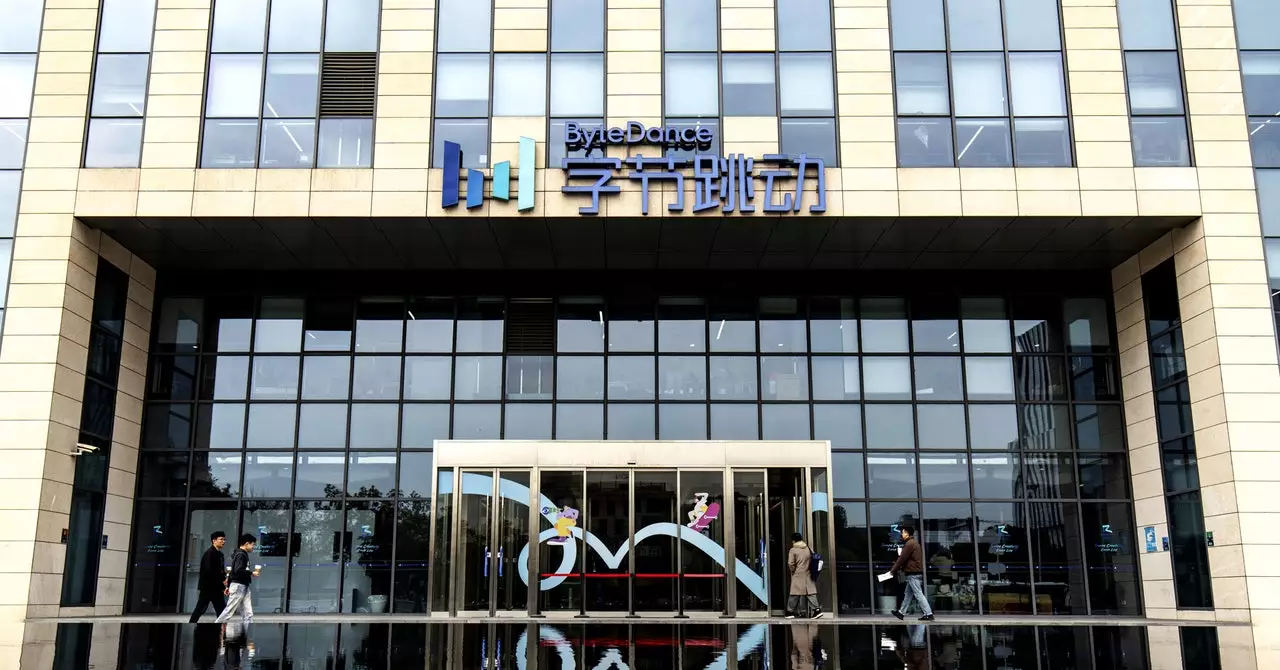In a twist that has sparked heated debate within the AI research community, an ex-intern from ByteDance named Keyu Tian has garnered the prestigious Best Paper Award at the Neural Information Processing Systems (NeurIPS) conference. While recognition for outstanding academic contributions is normally celebrated, the context surrounding Tian’s award raises alarming questions about professional ethics and integrity in academia. Tian is a master’s student at Peking University and has recently been embroiled in allegations of sabotage against his former colleagues at ByteDance. This situation serves as a stark reminder of the fine line between academic acclaim and ethical conduct in research.
The awarded paper, titled “Visual Autoregressive Modeling: Scalable Image Generation via Next-Scale Prediction,” proposes advancements in AI-generated imagery, asserting efficiency that could surpass that of existing methods. Co-authored with four other researchers associated with either ByteDance or Peking University, the findings present compelling arguments for their innovative approach. The award committee highlighted the paper’s technical merits, emphasizing its experimental validation and insights into scaling laws, which appear to bolster the case for further exploration of their model.
However, the implications of this recognition become complicated when viewed in the context of the legal actions ByteDance has initiated against Tian, which allege that he committed serious professional misconduct. This contradiction begs the question: should academic achievements be recognized in a vacuum devoid of an author’s ethical standing?
In the wake of the award announcement, sentiments have surfaced critically questioning NeurIPS’s evaluative principles. Comments from prominent figures such as Abeba Birhane from the AI Accountability Lab illustrate a growing concern that the practices observed at NeurIPS may not align with the ethical standards the conference purports to uphold. As the academic community grapples with the balance of meritocracy and ethics, criticisms have been pointed: the committee’s decision seemed to overlook potential moral repercussions in favor of purely scientific evaluation.
The spokesperson for NeurIPS clarified that their assessment focused solely on the paper’s scientific contributions, adhering to a blind review process. Nevertheless, this defense raises further questions about the sufficiency of blind review protocols in preventing recognition of work linked to questionable ethical behavior. In an increasingly interconnected world where professional paths can overlap markedly, it is imperative that such processes take into account the full scope of an author’s conduct.
As the dialogue around these issues intensifies, the broader community must consider reforming the current standards for assessing academic contributions. Recognition should not come at the risk of endorsing unethical behavior or undermining collaborations built on trust. Given the profound impact that AI technologies will have on society, upholding ethical integrity while fostering innovation is imperative.
NeurIPS stands at a crossroads, with the opportunity to redefine what it means to honor exceptional work in AI research. A more comprehensive evaluative framework that integrates ethical considerations alongside scientific merit could serve not only to protect the integrity of research but also build a more responsible future for AI advancement. The developments surrounding Keyu Tian’s paper may serve as a significant lesson in ensuring that academic accolades reflect not just innovative contributions, but the merits of the individuals behind them.


Leave a Reply